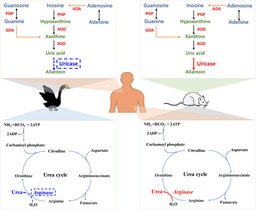Uncovering a new precision medicine target in pancreatic cancer
Published in Cancer and Biomedical Research

Pancreatic ductal adenocarcinoma (PDAC) affects ~60,000 people per year in the United States, and its incidence is rising. The prognosis and survival rate remains one of the lowest among all cancers (PMID: 30620402). Beyond chemotherapy, there is an urgent need for novel therapies for this disease. Genetically, around 90% of all PDAC cases are predominately characterized by KRAS mutations. The other 10% have alterations in other ultra-rare oncogenic driver alterations such as FGFR genes. Recent retrospective studies in advanced pancreatic cancer and other cancers suggest that matching targeted therapy to a patient’s cancer improves overall survival and clinical outcomes.
In this article, we describe four FGFR2-fusion positive PDAC patients who received matched FGFR targeted therapy. They all displayed improved survival, between two to seven years, and durable responses or disease control to FGFR kinase inhibitors. With the 5-year survival rate being 12% for PDAC, these patients exhibited better outcomes and quality of life ultimately illustrating an opportunity for precision oncology in pancreatic cancer.
Additionally, we examined 30,229 tumors with clinical diagnosis of pancreatic cancer in collaboration with Foundation Medicine Inc. In this cohort, there were 245 (0.8%) FGFR1, FGFR2, or FGFR3 fusion-positive PDAC cases all mutually exclusive from other known oncogenes supporting their role as driving alterations.
Based on these findings, we have designed and are currently implementing a telemedicine-based clinical trial for pemigatinib for pancreatic cancer patients with FGFR2 and other FGFR alterations. FGFR alterations in PDAC represents a rare cancer--- a traditional clinical trial approach would have challenges with cost, timeliness, and accrual. We are breaking down this barrier for patients with this rare cancer to more easily access treatments specific to their cancer. We anticipate that telemedicine approaches for clinical research will open doors for additional rare cancer subtypes.
For more information about the clinical trial and patient registry, contact Sameek Roychowdhury, MD, PhD sameek.roychowdhury@osumc.edu or Zachary Risch, MD zachary.risch@osumc.edu
Follow the Topic
-
npj Precision Oncology

An international, peer-reviewed journal committed to publishing cutting-edge scientific research in all aspects of precision oncology from basic science to translational applications to clinical medicine.
Related Collections
With Collections, you can get published faster and increase your visibility.
Tumor-type-agnostic biomarkers and treatments in oncology
Publishing Model: Open Access
Deadline: Mar 05, 2026
Emerging adjuvant and neo-adjuvant treatment approaches in solid tumors
Publishing Model: Open Access
Deadline: Mar 30, 2026





Please sign in or register for FREE
If you are a registered user on Research Communities by Springer Nature, please sign in